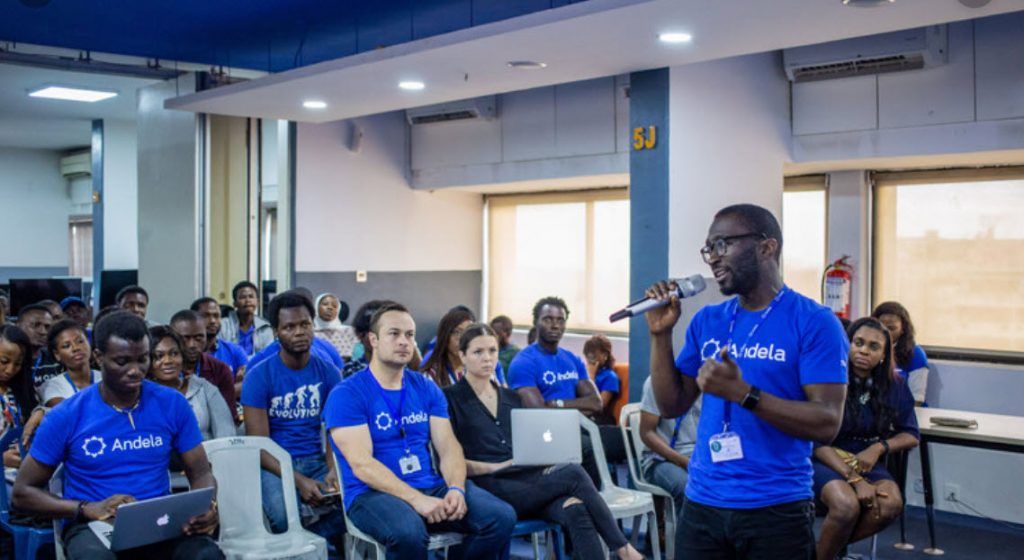If there is any great place for a developer in Africa to work today, that would be Andela. The tech talent outsourcing company as curved its niche out on the continent as the premium work place for start-up developers. If you’re wondering, what exactly Andela does, no worries let me break it down for you.
It’s actually simple. Get “low-cost” talent in Africa, train them until they reach a certain expert level and place (outsource) them in American companies to work for them remotely and pay them a portion of what the partners give you. On paper this is a great strategy, for the company but after sometime somethings don’t add up. (Note to self: to continue this later)
After raising over $100 million early this year, the company made a huge turn around recently when it ended its developer training programs in Nigeria, Kenya and Uganda, letting go of up to 400 people.
With well structured operations in Kenya, Uganda, Nigeria, Rwanda and recently Egypt — Andela has about 1,200 developers working for more than 200 companies, nearly 90% of which are located in the U.S and the rest in other western markets.
Remember when I said somethings may not add up especially for a developer who would want to join Andela? Well, according to Forbes, the African start-up is paid over $ 4,000 and $10,000 per month per developer by their partners. Since salaries in Africa are not supposed to be so high (don’t ask me why may be you were born on the wrong continent). $4,000 can pay a CEO, MD or Senior Manager of a company in Africa– so why give it to a mere developer?
So in order to remain in business, instead of getting paid the $ 4,000 per month a developer will have to settle for a gross pay of about $1,300 per month a third of what they are worth in the west. Don’t get me wrong, this is still very good money for a start up developer. The other two-thirds is used to support the company’s operations, cover the cost of training and maintain its facilities in Africa.
It’s because of this strategy, the company has hundreds of skilled developers in some of Africa’s largest tech ecosystems, it’s uncertain if the region can absorb these displaced workers. Andela makes no money in training developers as they rely on the fact that a developer will finish the training and then be placed with their partners later and get that two-thirds of their worth. Whoever, a time reaches when many developers are ready for placement but cannot be placed for many reasons or even their American partners jump ship (churn) of one reason or another.
Partner churn at Andela
The African tech giant has to ensure that their American partners keep giving them business, but there could be many reasons why these partners could churn– three paramount ones include;
Partner Bias on African developer talent
Some clients might have a bias against the competence of African software developers, so they end up assigning low level maintenance or support work and are left out of on working on the core software development cycle. The company is challenged with removing this stigma to ensure that the engineers assigned to relevant jobs to build core and world class products.

Agility of the software industry
Software companies change at a rapid pace, so the software engineers have to develop an Agile mentality. As technology changes we have seen many companies shift from legacy web programming languages like Java, C# to others languages like Node.js, react, Python etc. So, what happens to an Andela Partner legacy software developer when such a huge happens with in the partner company? Andela is now challenged to ensure up-skilling developers to closely match their western partners. It became important for Andela to keep track of Engineer’s talents so that they are not relegated.
Developer Experience
Software developers go through the company’s life-cycle stage at Andela and ultimately are placed into an external organization and through their fellowships. It’s paramount that client facing developers are retained by Andela and at the same time ensuring they fully understand the partner’s needs and are not half baked. Developers should be able to produce high quality work, and the African-based software company needs to keep track of developer performance and maintain it.
Failure to tackle these issues the company always runs a risk of losing their partners which is a threat to their overall valuation. The current valuation puts the company at somewhere between $600 million and $700 million.
Initially the outsourcing startup planned to double in size thanks to its new cash infusion, hiring another thousand developers. They were also going to invest in new product development and create internal engineering and data resources. Executives at Andela claim the recent layoffs are largely thanks to an up well of training programs on the continent since it first launched in 2014, and that the changes are not about cost cutting.
The Middle Man
In essence Andela is a middle man and acts as a bridge for African developers to showcase their talent in the west. Business giants like Infosys, Wipro and Tata Consultancy Services have a reputation for handling mostly lower-skill projects and are controversial in the U.S., because critics accuse them of abusing the H-1B visa program to undercut local wages.
It should be noted that these developers work remotely with their partners and if time zone shifting is not a problem for you– Why wouldn’t an experienced developer just cut out the middle man and get these remote jobs done directly at a better pay? Just asking!


